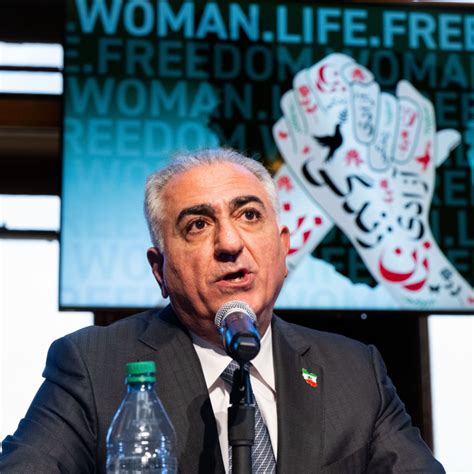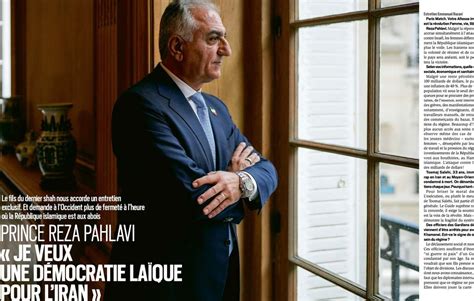
Imane Khelif, an Algerian boxer, faces renewed scrutiny after a leaked medical report allegedly indicates she is biologically male, raising questions about her eligibility to compete in women’s boxing events at the international level.
A medical report, allegedly proving that Algerian boxer Imane Khelif is biologically male, has been leaked and is now circulating online, reigniting controversy surrounding her participation in women’s boxing competitions. The leaked document, the authenticity of which is yet to be independently verified, has prompted calls for investigations into her eligibility and fairness within the sport. Khelif has previously faced challenges regarding her participation, specifically at the 2023 World Boxing Championships, where she was deemed ineligible by organizers following medical examinations conducted by the International Boxing Association (IBA). However, she was later cleared to compete, leading to widespread debate about the criteria for gender verification in sports.
The controversy stems from concerns that Khelif’s potential biological advantages, if she is indeed biologically male, could unfairly impact her female competitors. The leaked report, if confirmed, would likely lead to renewed calls for stricter and more transparent gender verification processes within boxing and other sports to ensure fairness and equal opportunity. The situation also underscores the complex and evolving understanding of gender and its implications for athletic competition, sparking discussions about inclusivity, fair play, and the role of medical science in determining eligibility. The Algerian Boxing Federation and the IBA have yet to release official statements addressing the leaked report and its potential consequences. The controversy continues to unfold, with implications for Khelif’s career and the broader landscape of women’s boxing.
The leaked report has sent shockwaves through the boxing community, with many athletes, coaches, and officials expressing concern over the integrity of the sport. The incident raises critical questions about the effectiveness of current gender verification protocols and the potential for individuals with biological advantages to compete unfairly in women’s categories. Some experts argue that the current guidelines, which often rely on hormonal levels and physical examinations, may not be sufficient to address the complexities of gender identity and biological variations. Others maintain that stricter measures are necessary to protect the rights and opportunities of female athletes who have dedicated their lives to the sport.
The controversy surrounding Imane Khelif highlights the ongoing debate about inclusivity and fair play in sports. As scientific understanding of gender continues to evolve, sports organizations face the challenge of developing policies that are both fair and inclusive. The leaked report has intensified calls for a more nuanced and comprehensive approach to gender verification, one that takes into account the diverse range of biological factors that can influence athletic performance. The situation also underscores the importance of protecting the privacy and dignity of athletes while ensuring a level playing field for all competitors.
The International Boxing Association (IBA) has faced increasing pressure to address the concerns raised by the leaked report. Some critics argue that the organization has been slow to respond to previous challenges regarding Khelif’s eligibility, and that a more proactive approach is needed to ensure fairness and transparency. The IBA has a responsibility to uphold the integrity of the sport and to protect the rights of all athletes, regardless of gender. This requires a commitment to developing and implementing robust gender verification protocols that are based on the latest scientific evidence and ethical considerations.
The leaked report has also raised concerns about the potential for discrimination and harassment against athletes who are perceived to be gender non-conforming. It is essential that any investigation into Khelif’s eligibility is conducted in a respectful and sensitive manner, and that she is afforded the same rights and protections as any other athlete. The focus should be on ensuring fair play and equal opportunity, while also safeguarding the dignity and well-being of all individuals involved.
The controversy surrounding Imane Khelif is a reminder of the complex and evolving nature of gender and its implications for sports. As scientific understanding continues to advance, sports organizations must be prepared to adapt their policies and procedures to ensure fairness, inclusivity, and respect for all athletes. The leaked report has sparked a critical conversation about the future of gender verification in sports, and it is essential that this conversation is guided by evidence, ethics, and a commitment to creating a level playing field for all competitors.
Previous Controversies and IBA’s Stance
Prior to this leaked report, Imane Khelif encountered issues with her eligibility for the 2023 World Boxing Championships held in New Delhi. Initially, she was declared ineligible by the International Boxing Association (IBA) following their medical examinations. The specific reasons for this initial ineligibility were not publicly disclosed in detail but were related to the IBA’s medical assessment protocols.
However, the IBA subsequently reversed its decision, clearing Khelif to compete. This reversal sparked considerable debate within the boxing community and among sports analysts. Critics questioned the transparency of the IBA’s decision-making process, particularly regarding the initial disqualification and the subsequent reinstatement. The IBA defended its actions by stating that Khelif had met the necessary criteria following a review of her medical information. However, the lack of specific details surrounding the medical assessments and the reasons for the initial disqualification fueled speculation and distrust.
This earlier controversy underscores the existing tensions and uncertainties surrounding gender verification processes in boxing. The leaked report has amplified these concerns, adding another layer of complexity to the ongoing discussion about fairness, inclusivity, and the role of medical science in determining athletic eligibility. The IBA’s handling of the current situation will be closely scrutinized, as it seeks to balance the need for fair competition with the rights and dignity of individual athletes.
The IBA’s regulations regarding eligibility are complex and subject to interpretation, further complicating the matter. The organization’s medical commission plays a crucial role in assessing athletes’ eligibility based on a range of factors, including hormonal levels and physical examinations. However, the specific criteria used for these assessments are often not publicly disclosed, leading to concerns about transparency and consistency.
Implications for Imane Khelif’s Career
The leaked report has placed Imane Khelif’s boxing career in serious jeopardy. If the report is verified and confirmed to be accurate, she could face disqualification from future competitions and potentially be stripped of any previous titles or awards. The reputational damage associated with the controversy could also make it difficult for her to secure sponsorships or endorsements.
Beyond the immediate impact on her career, the controversy could also have a lasting effect on Khelif’s personal life. The intense media scrutiny and public debate could lead to significant stress and emotional distress. It is essential that she receives the support and resources she needs to navigate this challenging situation.
The controversy also raises broader questions about the treatment of athletes who face questions about their gender identity or biological sex. It is crucial that these athletes are treated with respect and dignity, and that their privacy is protected. The focus should be on ensuring fair play and equal opportunity, while also safeguarding the well-being of all individuals involved.
The Broader Context: Gender Verification in Sports
The controversy surrounding Imane Khelif is part of a larger discussion about gender verification in sports. For decades, sports organizations have struggled to develop fair and effective policies for determining which athletes are eligible to compete in women’s categories. These policies have often been controversial, as they can be seen as discriminatory or invasive.
Historically, gender verification methods have included physical examinations, chromosomal testing, and hormonal testing. However, these methods have been criticized for being inaccurate, unreliable, and potentially harmful. In recent years, there has been a growing movement towards more inclusive and less invasive approaches to gender verification.
Some organizations have adopted policies that focus on testosterone levels, arguing that this is a more reliable indicator of athletic performance. However, these policies have also been criticized for being overly simplistic and for failing to take into account the complex interplay of biological factors that can influence athletic ability.
The International Olympic Committee (IOC) has revised its gender verification guidelines several times over the years, reflecting the evolving scientific understanding of gender. The current IOC guidelines focus on testosterone levels and allow athletes who meet certain criteria to compete in women’s categories, regardless of their biological sex.
However, these guidelines remain controversial, and there is ongoing debate about the best way to balance the principles of fair play and inclusivity. The controversy surrounding Imane Khelif highlights the need for a more nuanced and comprehensive approach to gender verification, one that takes into account the diverse range of biological factors that can influence athletic performance.
Ethical Considerations
The situation surrounding Imane Khelif raises several ethical considerations. First, there is the question of fairness. If Khelif is biologically male, would it be fair for her to compete against female athletes who may not have the same biological advantages? This is a complex question with no easy answers.
Second, there is the issue of privacy. Khelif’s medical information has been leaked to the public, which is a serious violation of her privacy. The individuals responsible for the leak should be held accountable.
Third, there is the potential for discrimination. Khelif should not be discriminated against based on her gender identity or biological sex. She should be treated with respect and dignity, regardless of the outcome of the investigation.
Fourth, there is the responsibility of sports organizations to ensure fair play and equal opportunity for all athletes. This requires a commitment to developing and implementing robust gender verification protocols that are based on the latest scientific evidence and ethical considerations.
The Role of the Media
The media plays a crucial role in shaping public opinion about the controversy surrounding Imane Khelif. It is essential that the media report on this issue in a fair, accurate, and responsible manner. The media should avoid sensationalizing the story or making unsubstantiated claims. The media should also respect Khelif’s privacy and avoid publishing sensitive personal information.
The media should also provide context and background information about the broader issues surrounding gender verification in sports. This will help the public to understand the complexities of the issue and to form their own informed opinions.
The media should also give a platform to different voices and perspectives. This will help to ensure that all sides of the story are heard.
Potential Legal Implications
The leaked report and the subsequent controversy could have significant legal implications. If Khelif is disqualified from future competitions, she could potentially file a lawsuit against the IBA or other organizations, alleging discrimination or violation of her rights. The individuals responsible for leaking Khelif’s medical information could also face legal action.
The legal issues surrounding gender verification in sports are complex and evolving. There is no clear legal precedent for many of the issues raised by the controversy surrounding Imane Khelif. Any legal challenges would likely be lengthy and expensive, and the outcome would be uncertain.
Impact on Women’s Boxing
The controversy surrounding Imane Khelif could have a significant impact on women’s boxing. The controversy could lead to increased scrutiny of female athletes and could make it more difficult for them to compete fairly.
The controversy could also undermine public confidence in women’s boxing. If people believe that female athletes are not competing on a level playing field, they may be less likely to watch or support the sport.
It is essential that sports organizations take steps to address the concerns raised by the controversy surrounding Imane Khelif. This will help to ensure that women’s boxing remains a fair and competitive sport.
Future of Gender Verification
The controversy surrounding Imane Khelif highlights the need for a more nuanced and comprehensive approach to gender verification in sports. The current policies, which often rely on hormonal levels and physical examinations, may not be sufficient to address the complexities of gender identity and biological variations.
Future gender verification policies should be based on the latest scientific evidence and ethical considerations. They should also be developed in consultation with athletes, medical experts, and legal scholars.
The goal of gender verification should be to ensure fair play and equal opportunity for all athletes, while also safeguarding the dignity and well-being of all individuals involved. This is a challenging task, but it is essential for the future of sports.
Official Statements and Reactions
As of the latest update, neither the Algerian Boxing Federation nor the International Boxing Association (IBA) has released an official statement addressing the leaked medical report. This silence has fueled further speculation and criticism, with many calling for a prompt and transparent investigation into the matter.
Unofficial reactions from within the boxing community have been varied. Some athletes and coaches have expressed concern about the integrity of the sport and have called for stricter gender verification protocols. Others have urged caution and have emphasized the importance of protecting Khelif’s privacy and dignity.
It is expected that official statements will be released in the coming days or weeks, as the relevant organizations gather information and assess the situation. These statements will likely provide more clarity on the next steps in the investigation and the potential consequences for Imane Khelif’s career.
The absence of official statements underscores the sensitivity and complexity of the situation. Sports organizations are often hesitant to comment on matters involving medical information or gender identity, due to legal and ethical considerations. However, the lack of communication can also create uncertainty and distrust, particularly when there is widespread public interest in the issue.
Potential Solutions and Recommendations
To address the challenges raised by the controversy surrounding Imane Khelif, several potential solutions and recommendations have been proposed:
- Independent Investigation: A thorough and independent investigation into the leaked medical report should be conducted to determine its authenticity and to identify the individuals responsible for the leak.
- Review of Gender Verification Protocols: The IBA should review its gender verification protocols to ensure that they are fair, accurate, and based on the latest scientific evidence.
- Transparency and Communication: The IBA should improve its transparency and communication regarding gender verification policies and procedures. This will help to build trust and confidence among athletes and the public.
- Athlete Support: Imane Khelif should be provided with the support and resources she needs to navigate this challenging situation, including legal counsel, medical care, and mental health services.
- Education and Awareness: The boxing community should be educated about gender identity and biological variations. This will help to reduce stigma and discrimination.
- Collaboration and Consultation: Sports organizations should collaborate with medical experts, legal scholars, and athletes to develop fair and inclusive gender verification policies.
- Protection of Privacy: Sports organizations should take steps to protect the privacy of athletes and to prevent the unauthorized disclosure of medical information.
- Ethical Guidelines: Sports organizations should develop ethical guidelines for gender verification that prioritize the well-being and dignity of all athletes.
These solutions and recommendations are not exhaustive, but they represent a starting point for addressing the complex challenges raised by the controversy surrounding Imane Khelif. It is essential that sports organizations take these issues seriously and that they work together to create a more fair, inclusive, and respectful environment for all athletes.
Frequently Asked Questions (FAQ)
Q1: What is the main issue surrounding Imane Khelif?
A: The main issue is a leaked medical report that allegedly indicates Imane Khelif is biologically male, raising questions about her eligibility to compete in women’s boxing events.
Q2: Has the authenticity of the leaked medical report been confirmed?
A: No, the authenticity of the leaked medical report has not been independently verified. Investigations are needed to confirm its validity.
Q3: What was the controversy surrounding Imane Khelif at the 2023 World Boxing Championships?
A: Imane Khelif was initially deemed ineligible to compete at the 2023 World Boxing Championships by the IBA, citing medical reasons. However, this decision was later reversed, and she was cleared to participate.
Q4: What are the potential consequences for Imane Khelif if the report is verified?
A: If the report is verified, Imane Khelif could face disqualification from future competitions, stripping of titles, reputational damage, and emotional distress.
Q5: What is the IBA’s stance on gender verification in sports?
A: The IBA’s stance involves medical assessments, but the specific criteria used for these assessments are often not publicly disclosed. This has led to calls for more transparency and consistent gender verification policies to ensure fair play.









